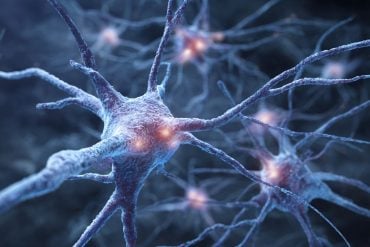Summary: A new study suggests that SSRIs, commonly prescribed antidepressants, may reduce biological markers of Alzheimer’s disease. In a cohort of 191 individuals, AD patients on SSRIs had lower levels of plasma phosphorylated tau-181, a key indicator of disease severity.
Brain scans also showed that SSRIs restored metabolic activity in the dorsal raphe nucleus (DRN), an early site of tau accumulation and serotonin production. This metabolic recovery was not observed in healthy individuals, suggesting a disease-specific effect.
Key Facts:
- Reduced Tau Biomarkers: AD patients on SSRIs had significantly lower levels of p-tau181, a blood-based marker of tau pathology.
- Restored Brain Activity: SSRIs reversed hypometabolism in the dorsal raphe nucleus, a serotonin-rich region and early site of Alzheimer’s damage.
- Mixed Cognitive Effects: While some cognitive scores improved, results varied across different testing methods, complicating conclusions about functional benefit.
Source: Neuroscience News
A new study suggests that selective serotonin reuptake inhibitors (SSRIs), a common class of antidepressants, may do more than lift mood: they might help reduce the biological burden of Alzheimer’s disease (AD).
Researchers have found that long-term SSRI use in patients with AD is associated with reduced tau pathology, a hallmark of the disease, and restored activity in a key brain region—though the effects on memory and cognition remain complex.

The dorsal raphe nucleus (DRN), a tiny region deep in the brainstem, is one of the earliest areas to show tau accumulation in AD. It’s also the brain’s primary source of serotonin, the neurotransmitter targeted by SSRIs.
This new research shows that in people with Alzheimer’s, the DRN becomes metabolically sluggish—but SSRI treatment appears to reverse this, boosting its activity back toward healthy levels.
The research team analyzed data from 191 participants in the Alzheimer’s Disease Neuroimaging Initiative (ADNI), comparing individuals with and without SSRI use.
They measured a blood biomarker of tau pathology (phosphorylated tau-181, or p-tau181), conducted brain scans of metabolic activity, and evaluated cognitive performance across different tests.
They found that AD patients who were using SSRIs had significantly lower plasma p-tau181 levels than those not taking antidepressants. These results suggest a potential protective effect of SSRIs on tau pathology.
Brain imaging confirmed that the DRN in AD patients is typically hypometabolic—essentially underactive.
However, patients on SSRIs showed restored glucose metabolism in this region, a sign of revived neural function. This effect was specific to those with AD; healthy control participants showed no change in DRN metabolism with SSRI use, possibly due to a built-in feedback regulation in the serotonin system that dampens unnecessary activity.
Despite these promising biological findings, the impact of SSRIs on cognitive performance was mixed.
While some patients performed better on certain cognitive tests (like the Montreal Cognitive Assessment, or MoCA), others did not show measurable improvements.
Intriguingly, the usual correlation between different cognitive assessments broke down in SSRI users—hinting that antidepressants may affect how cognitive decline is measured, rather than how it progresses.
Researchers emphasize that this was a cross-sectional study, meaning it can’t prove cause and effect. It also couldn’t account for the specific types or dosages of SSRIs used, nor whether treatment began before or after AD symptoms emerged.
Still, these results offer strong support for further clinical trials exploring the timing, duration, and cognitive impact of SSRI treatment in neurodegenerative diseases.
In summary, this study adds to growing evidence that the brain’s serotonin system is deeply intertwined with Alzheimer’s pathology.
While SSRIs are primarily prescribed for mood disorders, they may also influence key processes in Alzheimer’s—including the metabolism of vulnerable brain regions and the spread of toxic proteins.
As researchers continue to probe the connection between mood, memory, and brain chemistry, SSRIs may offer a surprising ally in the fight against cognitive decline.
About this neuropharmacology and Alzheimer’s disease research news
Author: Neuroscience News Communications
Source: Neuroscience News
Contact: Neuroscience News Communications – Neuroscience News
Image: The image is credited to Neuroscience News
Original Research: Open access.
“SSRIs reduce plasma tau and restore dorsal raphe metabolism in Alzheimer’s disease” by Dylan J. Terstege et al. Alzheimer’s & Dementia
Abstract
SSRIs reduce plasma tau and restore dorsal raphe metabolism in Alzheimer’s disease
INTRODUCTION
Tau pathology impacts neurodegeneration and cognitive decline in Alzheimer’s disease (AD), with the dorsal raphe nucleus (DRN) being among the brain regions showing the earliest tau pathology. As a serotonergic hub, DRN activity is altered by selective serotonin reuptake inhibitors (SSRIs), which also have variable effects on cognitive decline and pathology in AD.
METHODS
We examined N = 191 subjects with baseline 18F-fluorodeoxyglucose positron emission tomography and plasma biomarker data to study the effects of SSRIs on tau pathology, cognitive decline, and DRN metabolism.
RESULTS
Plasma phosphorylated tau 181 (p-tau181) was lower with SSRI use. The effect of SSRIs on cognition varied by cognitive assessment. The DRN was hypometabolic in AD patients relative to healthy controls; however, SSRI use restored the metabolic activity of this region in AD patients.
DISCUSSION
Long-term SSRI use may reduce the pathological presentation of AD but has variable effects on cognitive performance.







